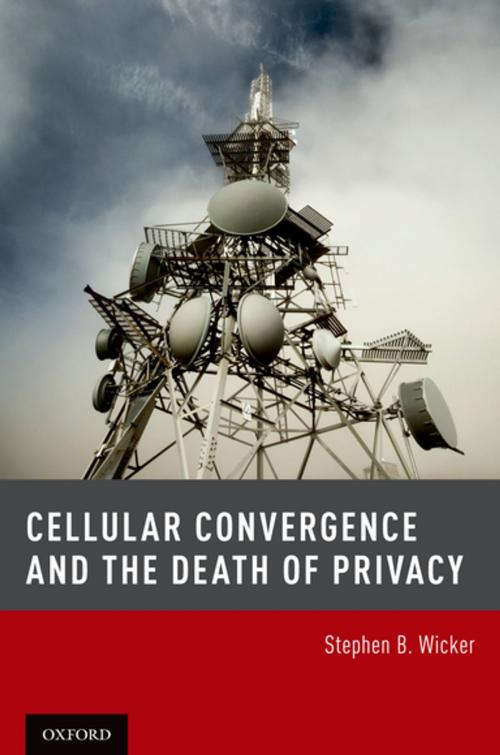| Author: | Professor Stephen B. Wicker | ISBN: | 9780199968367 |
| Publisher: | Oxford University Press | Publication: | August 21, 2013 |
| Imprint: | Oxford University Press | Language: | English |
| Author: | Professor Stephen B. Wicker |
| ISBN: | 9780199968367 |
| Publisher: | Oxford University Press |
| Publication: | August 21, 2013 |
| Imprint: | Oxford University Press |
| Language: | English |
Cellular technology has always been a surveillance technology, but "cellular convergence" - the growing trend for all forms of communication to consolidate onto the cellular handset - has dramatically increased the impact of that surveillance. In Cellular Convergence and the Death of Privacy, Stephen Wicker explores this unprecedented threat to privacy from three distinct but overlapping perspectives: the technical, the legal, and the social. Professor Wicker first describes cellular technology and cellular surveillance using language accessible to non-specialists. He then examines current legislation and Supreme Court jurisprudence that form the framework for discussions about rights in the context of cellular surveillance. Lastly, he addresses the social impact of surveillance on individual users. The story he tells is one of a technology that is changing the face of politics and economics, but in ways that remain highly uncertain.
Cellular technology has always been a surveillance technology, but "cellular convergence" - the growing trend for all forms of communication to consolidate onto the cellular handset - has dramatically increased the impact of that surveillance. In Cellular Convergence and the Death of Privacy, Stephen Wicker explores this unprecedented threat to privacy from three distinct but overlapping perspectives: the technical, the legal, and the social. Professor Wicker first describes cellular technology and cellular surveillance using language accessible to non-specialists. He then examines current legislation and Supreme Court jurisprudence that form the framework for discussions about rights in the context of cellular surveillance. Lastly, he addresses the social impact of surveillance on individual users. The story he tells is one of a technology that is changing the face of politics and economics, but in ways that remain highly uncertain.















